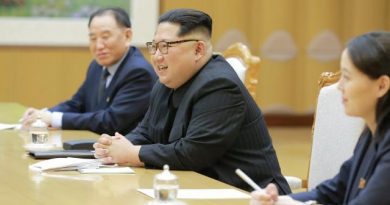Campaigning Begins to Replace Ousted South Korean President
By Daniel D’Amico
Staff Writer
On March 10, a unanimous court ruling approved the South Korean National Assembly’s December vote to impeach former President Park Geun-hye. According to Korean law, a new president must be elected within sixty days of the ruling. The vote, announced by Prime Minister Hwang Kyo-ahn, has been scheduled for May 9. Hwang, who has been serving as acting president, does not intend to run for the position, as reported by the New York Times.
The New York Times also reported that “Park was the first South Korean leader forced from office under popular pressure since the country’s founding president, Syngman Rhee.” Park has been accused of bribery, extortion, and abuse of power. She is also suspected of collaborating with a confidante to collect tens of millions of dollars from big businesses like Samsung, some of which are believed to be bribes for political favors.
While she could not be indicted as president, Park has now been summoned for questioning concerning the criminal accusations. The former president was also accused of covering up the court’s allegations. Some regard her, however, as a victim of some sort of “left-wing witch hunt,” as reported in the Economist. There are currently two confirmed deaths from clashes with the police as a result of protests.
With the current acting president not running for reelection, other contenders have emerged. The Terminal High Altitude Area Defense (THAAD) system, the United States-built anti-ballistic missile system, remains a key campaign issue, as reported by Channel News Asia. One candidate, Moon Jae-In, is a 64-year-old lawmaker and ex-leader of the Democratic Party currently leading in polls at 32 percent. Moon believes in delaying the deployment of the THAAD system and in unity with North Korea.
An Hee Jung is a 51-year-old two-term governor of South Chungcheong polling at 17 percent. He was an aide to former president Roh Moo-hyun and supports the THAAD deal. Channel News Asia also reported about another supporter of the THAAD deal, Ahn Cheol-Soo, who is a 55-year-old former doctor, computer businessman, and member of Parliament. He stepped down as the co-chair of People’s Party after a scandal which decreased his popularity, and is currently polling at 9 percent. Ahn also believes in the expansion of small and medium-sized enterprises.
Lee Jae-Myeong, a prominent Democratic Party candidate, is a 52-year-old mayor of Seongnam, a city southeast of Seoul. As reported by VOA News, he gained popularity by being an outspoken critic of former President Park and is polling at 8 percent. Lee is against the THAAD deal and is known for his criticism of the various family-run corporations, or chaebol.
The next president will have many obstacles to face, such as the corruption and persuasive influence of the chaebol. Another struggle is that of the U.S. and Chinese dispute over influence in South Korea.
There is also the issue of how to deal with North Korea as their ability to deploy nuclear missiles improves. With this comes the THAAD deal to put the U.S. missile defense system in South Korea by the end of the year. According to Slate, this defense system is in response to North Korean missile tests and is capable of combatting short and intermediate range missiles. The presidential candidates and public opinion are divided over whether they want this deal to come to fruition.
Three of the parties, however, have found some common ground. As reported by The Diplomat, they formed a coalition in an attempt to limit the presidential term to four years with possible re-election. In addition to the main election, there will most likely be a party primary and run-off within the next two months.

